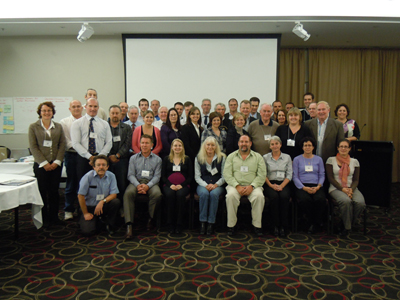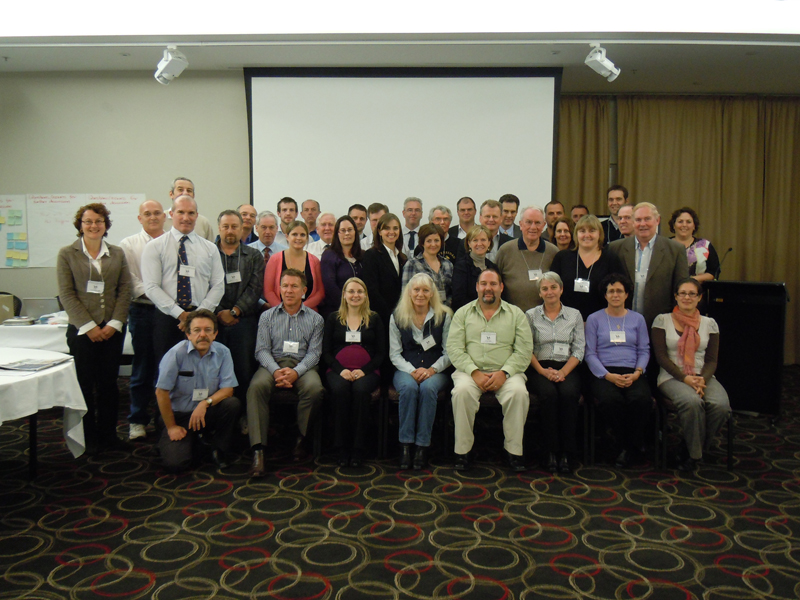The G. Caporale Institute visits Australia to discuss the management of non-epidemic emergencies
An international working group met in Melbourne from 4 to 5 May 2011 to compare notes on the management of natural disasters and discuss the subjects most relevant to the protection of animal health and welfare during non-epidemic emergencies.
The objectives of the event, organised by the State of Victoria's Department of Primary Industries in collaboration with the World Society for the Protection of Animals (WSPA), were a critical evaluation of the emergency plans implemented and identification of the major problems encountered in animal search and rescue operations after the serious flooding and huge bushfires in Australia in recent years, and the earthquakes in L'Aquila, Italy in 2009 and Christchurch, New Zealand, in 2011.
A representative from ICT (the Caporale Institute from Teramo) was invited to attend by the European Commission, in order to disseminate overseas the know-how and skills developed at the time of the Abruzzo earthquake.
The two-day event, which focused on discussion of cases reported, enabled delegates to review the situation regarding the most effective strategies and the most advanced tools adopted at national, regional and local level for the management of emergencies, focusing on the essential need for systematic planning of measures designed to deal with the effects of disasters in an integrated way, in order to restore the previous conditions rapidly, and even improve them where possible. After analysing the various reference models, delegates identified the active involvement of the local community as the crucial factor in preventing and mitigating the effects of disasters, especially on companion animals and animal species reared in periurban areas.
Numerous operational proposals were made during the plenary sessions, from the production of environmental risk maps to the development of information systems for the traceability of animals, especially those reared under extensive conditions, to ensure systematic acquisition of the data and information required to identify priorities, establish objectives, monitor the planned activities and take corrective measures where necessary.
Delegates also emphasised the need to produce manuals and standard operating procedures, develop protocols for the evaluation of animal welfare during natural disasters and prepare specific communication plans, and establish training paths which guarantee continuing professional education for the various professional figures involved.
Adapting and harmonising the existing legislation, and conducting cost-benefit analyses of the various procedures, remains a priority, as is the need for a clear definition of roles and responsibilities, to ensure that the protection and humanitarian associations are fully integrated into animal search and rescue plans.
The participants said they would be interested in supporting similar future initiatives, which are useful to disseminate the Community approach to management of emergencies and promote the culture of international cooperation as a protective factor for communities, ecosystems and economies exposed to the risk of further serious natural disasters.
© IZSAM August 2016
|
|
Istituto Zooprofilattico Sperimentale
dell'Abruzzo e del Molise "G. Caporale"
Campo Boario | 64100 TERAMO | ITALIA
Telefono 0039.0861.3321 | Fax 0039.0861.332251
e-mail: archivioeprotocollo@izs.it
Posta elettronica certificata: protocollo@pec.izs.it
Partita IVA: 00060330677
Codice Fiscale: 80006470670




